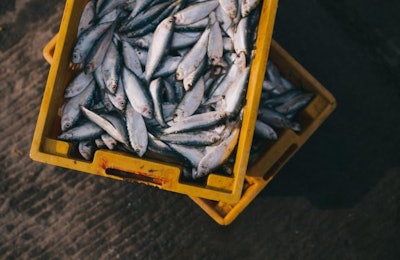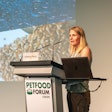
Mars and Nestlé announced that they will take steps to ensure their pet food supply chains are free of human rights abuses and illegally caught seafood, according to Greenpeace. Their commitments may put pressure on seafood company Thai Union, a supplier for both companies, to eliminate any outstanding risks of human rights abuses and illegal, unreported and unregulated fishing in its own supply chains.
Nestlé has committed to a full ban on transshipment at sea in its supply chains, which is when a fish are transferred from one ship to another. Activists protest transshipment’s connections to human rights abuse, including slave labor, and the potential for fishing vessels to unload illegally caught loads into supply chains, away from port authorities.
Mars has committed to suspend the use of transshipped products in its supply chains, if its seafood suppliers cannot adequately address the human rights and illegal fishing issues associated with the practice in the coming weeks.
“These are the two largest pet food companies in the world, and their commitments to address transshipping at sea will put significant pressure on suppliers like Thai Union to show the leadership needed to clean up their own seafood supply chains,” said Greenpeace USA Oceans Campaigner Graham Forbes in a press release. “We’ll be closely monitoring Mars’ and Nestlé’s progress to ensure these policies lead to real changes on the water.”
Greenpeace campaign targeted Mars and Nestle supply chains
Greenpeace launched a campaign in 2016, Cats vs Bad Tuna, to demand that Mars ensure its supply chains were free of any potential human rights abuses. A Greenpeace Southeast Asia report, Turn the Tide, demonstrated the risk of unethically sourced seafood entering supply chains throughout 2016, including Nestlé and Thai Union’s. Nestlé immediately committed to address the concerns when they were raised in the report. Mars committed to tackle unchecked transshipment at sea in its pet food supply chains this month.
“Over the past several years, Nestlé and Greenpeace have worked together to strengthen Nestlé’s policies governing the procurement and responsible sourcing of seafood,” said Nestlé Purina PetCare Head of Sustainability Jack Scott in a press release. “In light of Greenpeace’s research findings, Nestlé has committed to a ban on all transshipments at sea.”
Nestle discovered slave labor used in its supply chains
In 2015, Petfood Industry reported that, after a yearlong internal investigation, Nestlé had found that migrant workers in Thailand were sold or lured under false pretenses and forced to catch and process fish that ended up in its supply chains.
A July article in the New York Times chronicled the lives of several men forced into labor on fishing boats in the South China Sea, off the coast of Thailand. These boats catch fish that are later shipped to the US and other places to be used in pet food and livestock feed.
Some of the fish caught on these boats is sent to a cannery called the Songkla Canning Public Company, which is a subsidiary of Thai Union Frozen Products, Thailand’s largest seafood company. According to US customs documents, more than 28 million pounds of seafood-based cat and dog food in the 2015 for brands sold in the US, including Iams, Meow Mix and Fancy Feast.


















